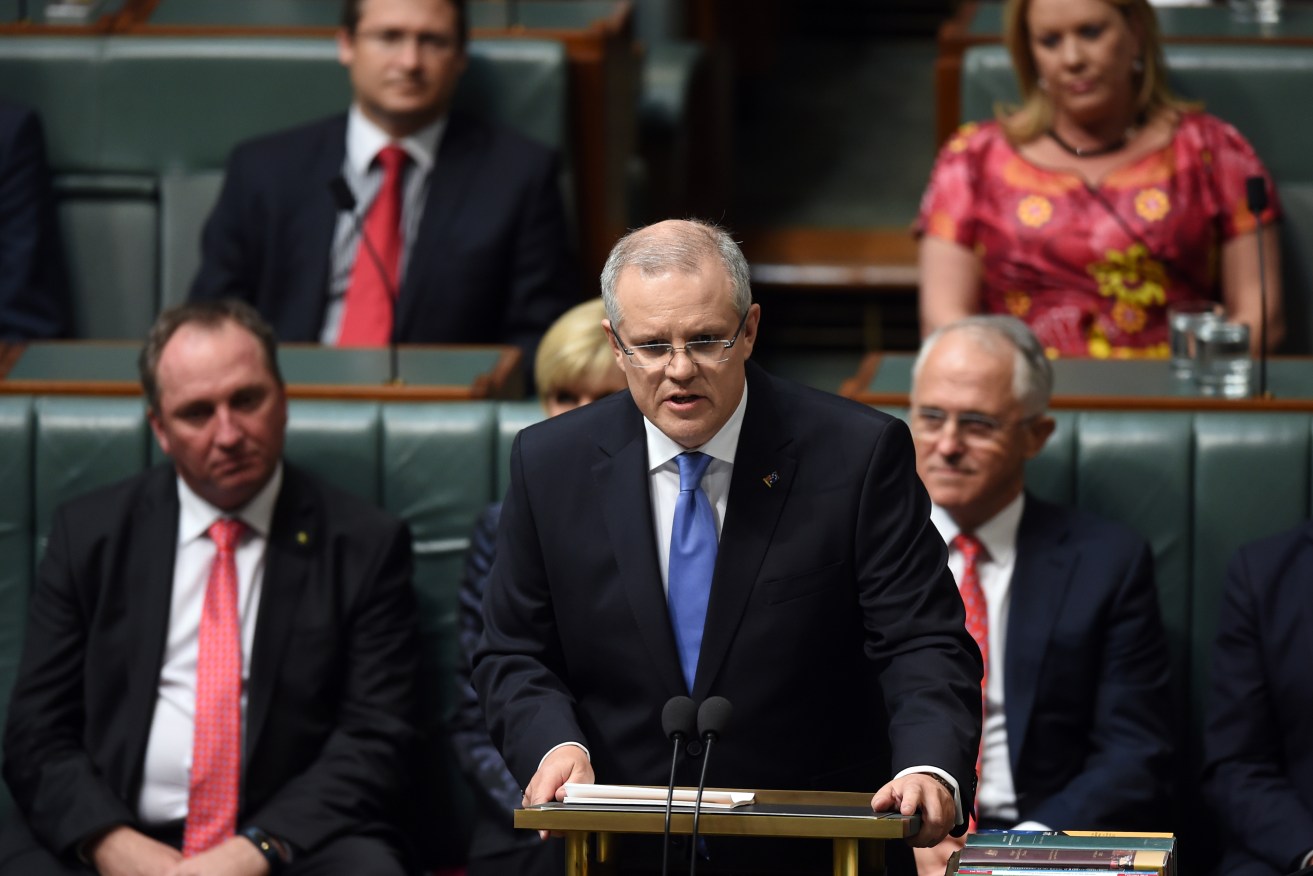Can Australia afford Morrison’s super changes?
The Federal Government’s proposed changes to superannuation reduce incentives for people to fund their own retirements – and that could cost the country dearly, argues Andrea Michaels.


Federal Treasurer Scott Morrison delivers his Budget speech. Photo: AAP Image/Lukas Coch
For middle-income earners in their 50s and 60s, waking up last Wednesday morning to read about the budget – specifically the raft of superannuation changes – probably caused some indigestion over breakfast.
Between the usual headlines of ‘winners and losers’ (something the Treasurer had been at pains to avoid), it must have become clear that any plans to save for a comfortable retirement were looking shaky.
Tax experts wondered how much some of these super changes might actually cost the country in the longer term. Financial Services Council chief executive Sally Loane was quoted in The Australian Financial Review last week saying the test will be if we create more pensioners or more self-funded retirees. At this stage, it doesn’t seem like the last group will be the winners.
So as I watched the Tax Institute’s post-budget broadcast listening to Scott Morrison repeatedly assert this budget was part of a ‘new national economic plan’, I tried to weigh it up.
The $1.6 million cap on accumulated pension accounts seems reasonable for the 1% of people in that lucky basket. If they have excess, they can move that to an accumulation account at a 15% tax rate. That’s not the end of the world. And the earnings on $1.6 million seem a reasonable amount to live on. Then there are initiatives to help women save for retirement, including carry-over entitlements (if they have any spare cash of course). That gets a tick. Rejigging of the low-income super concession is a good thing. Removing the work test for those aged over 64? That’s good. as is making the whole system a more level playing field for everyone.
But the big point the Turnbull government missed is that Australia has a rapidly ageing population. We’re unlikely to be able to afford a massive increase in the number of pensions in coming years. Our ‘national economic plan’ is not addressing that.
…if we can’t work out ways to encourage people to aspire to funding their own retirement, the government might have just thrown the baby out with the bathwater.
The budget papers show we spent $43.2 billion on pensions – about 10% of all government expenditure. With the increasing number of baby boomers now retiring, this is expected to grow to $51.8 billion within four years. Currently around 80% of people aged 65 and over are claiming a full or part pension – and they’re living longer than ever before.
The 2010 Intergenerational Report projected expenditure on age-related pension payments would increase from around 2.7 per cent to around 3.9 per cent of GDP by 2050.
We should be worried by these statistics as they affect South Australia in particular. We have the nation’s second oldest demographic profile, after Tasmania, with the average age of our citizens sitting at around 40 years.
Yet incentives for those who want to try to save and fund their own retirement – without government assistance – are fading. Concessional (deductible) contribution caps have been reduced now to $25,000 (it was previously $35,000 for those over aged 49) and the non-concessional cap is coming down to a $500,000 lifetime limit (it was previously $180,000 per year). This is a major blow for older workers who thought they could use these years to accumulate super after the kids (and the mortgage) were off their hands. And what’s more, there has been no warning or transitional period to plan for these changes.
I think Mr Morrison may be forgetting that with compulsory superannuation only starting in 1992, many folks are already behind the eight ball. Older Australians are trying to catch up and put away what money they can while they’re still working.
Why didn’t the government plan these changes to commence in five years time, to help everyone prepare? It wouldn’t have been the only change announced that far out in the budget. Why didn’t the government consider making the concessional contribution cap $25,000 for those aged under 42 (if you do the maths, this group has had the benefit of a lifetime of super), while those who are older could get a leg-up with the cap set at a higher amount to provide more chances to save?
Yes, I’m the first to agree we couldn’t afford all the current tax concessions and, no, the system wasn’t necessarily sustainable. Yes, the ultra wealthy shouldn’t be able to use tax breaks to stash away millions in super to pass on to the next generation. And, yes, praise should be given for attempts to make the system fairer for all. However, if we can’t work out ways to encourage people to aspire to funding their own retirement, the government might have just thrown the baby out with the bathwater.
Believe it or not, there are thousands of older Australians who don’t want to rely on welfare and are trying desperately to save up money to look after themselves in retirement. With the high cost of housing, low interest rates (and returns) and one of the highest costs of living in the world – this is truly a noble pursuit. Can’t we just cut them a break? We might be helping the country in the long run.
Andrea Michaels is a tax law specialist and the managing director of Adelaide firm NDA Law.




